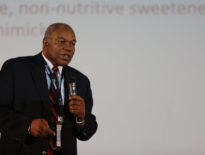“Suppose I go to the Israelites…and they ask me, ‘What is his name?’ Then what shall I tell them? God said to Moses, ‘I AM who I AM. This is what you are to say to the Israelites: I AM has sent me to you'” (Exodus 3:13-14).
Only God could carry such a name. I cannot say about myself that I am who I am, because the reality does not confirm this. The only situation in which this could be true is when I hide my own being in the great “I am”, which is Christ. Only then do I possess the identity with which and for which I have been created.
The triad to be, to do, to have
The name “I am” connects God’s identity not with what He does, nor with what He has, but with what He is. Being precedes and determines doing and having. Therefore, if they are not supported by being, then doing and having—even when they refer to prophecies, miracles, acts of charity or sacrifices, gifts and great talents, for anything and in any amount—are nothing but giant and deplorable fakes or, as Paul puts it, are “nothing”[1]. Surprisingly, the same principle applies in the domain of the negative: any man can do evil, yet he is different from what the evil he committed says he is (see the case of Saul of Tarsus[2]).
Unfortunately, our identities are not regarded in light of the verb “to be”. We are raised and educated in a system based on doing or not doing, having or not having. Our world is not interested in what one is because, almost without exception, all its laws and practices deal exclusively with what one is doing. The church has not escaped this trap, either. A believer is not appreciated for what he is, but for what he does or does not do. School, family, society, and history all judge according to the same criterion. But “a tree is recognized by its fruit”[3], right? Yes and no.
Before turning to Scripture, we must note that not any fruit which is considered good is indeed good and not any fruit considered bad is really bad. Most of the time, we have been hurt precisely because we thought the tree was good, basing our belief on the fruit that seemed good, but really wasn’t. Many lives can seem irreproachable, but how far this can be from reality! The Lord says: “Away from me!”[4] What a shock! Could anyone accuse Judas of not being a religious person? He may have been the most religious of the disciples, but to be religious does not necessarily mean to be faithful. Anyone who noticed his scrupulous way with finances would happily have nominated him for a cashier. His good image was so well put together in the eyes of Jesus’ disciples that not even when Jesus spoke openly about Judas being a traitor did they understand what it was all about. No one understood what the words, “What you are about to do, do quickly”[5] actually meant. Only Jesus knew that, despite what this “believer” did, he was, in fact, a thief.
But the Lord Jesus could not tell this to anyone, because everyone, without exception, was blinded by what Judas did, not by who he really was. Therefore to be and to do are not one and the same thing.
Anyone hearing Balaam prophesy about the star rising from Jacob would have placed him in a high position. Caiaphas also prophesied, but this did not make him a prophet. In other words, someone may prophesy or preach and, at the same time, hate and despise God with all their being. Many things are different than they appear.
Doing without being
Doing without being is an iniquity in God’s eyes. It’s acting, deceit. In this way, it is possible for someone to cheat others or even themselves, but not God. He is the One who will judge, not according to one’s appearance, but according to justice[6]. The rich young man thought that he was keeping God’s commandments. However, where can one find a more eloquent example of disobedience than in his refusal to follow Jesus’ command: “Go, sell everything you have and give to the poor, and you will have treasure in heaven. Then come, follow me”[7]? He confesses obedience with his mouth and apparently even with his deeds, but he contradicts what he does by who he is. Being is in contrast with doing. He convinced many, perhaps even himself, that he had been obedient since he “was a boy”[8], but what he was doing was so far from what he was! The disciples, who saw what this man was doing, but did not see who he was, were saddened by Jesus’ verdict. They could not see this young man’s disobedience for the multitude of his acts of “obedience”. Beyond this curtain of obedience lay the most treacherous form of disobedience to God. He did God’s works but was not the right person.
This is the symptom of an entire generation, which Paul says has “a form of godliness but [denies] its power. Have nothing to do with such people.”[9] By this Paul means stay away from this kind of life! Of people like this John writes: “They went out from us, but they did not really belong to us. For if they had belonged to us, they would have remained with us; but their going showed that none of them belonged to us.”[10]
I don’t know how preoccupied we can be with what we are, as long as society only takes interest in what we do. We should not be satisfied with the peace that society’s approval offers, because this foundation is the sand of appearances and human standards, and not the truth which we find in Christ. The apparent lack of evil does not automatically mean the presence of good. Jesus says that a man can be adulterous without physically committing the sin, or a murderer without actually killing someone. These things can happen in one’s heart and can stay hidden from the human eye, but not from God’s eye.
The deceitful mirror
We are tempted to believe that we are what we do and do what we are, although reality would argue against us. The only situation in which I am what I do and do what I am is when I live through Jesus Christ, through His sacrifice.
Like the reflection of an image in the water, the image of reality is turned upside down in our minds. On a beautiful day in a park somewhere in southern California, I had an animated discussion with a friend who claimed that man is sinful because he sins and that, if he did not sin, he would be innocent. I told him that, on the contrary, man sins because he is sinful, and sin is inevitable in a world of sin. It is not what he does or does not do that characterizes man, but what he really is. “Look”, I said, “imagine a little tiger cub. It does not even scratch anyone, let alone tear someone apart. Is it sinful or innocent? Just give this kitten, who now happily drinks milk, some time and you will see how it will cause blood to flow like water!” It does not matter what the cute tiger cub does, but what he really is.
You are not what you do, you do what you are
I come back to God. He is not what He does, but does what He is. He is not love because He loves, but loves because He is love. He does not have love, He is love. Jehu has zeal and Judah wit. Caiaphas cares for the faith and the people. Lucifer himself has many and incomparable gifts. But what do all the things these people have represent in contrast with what they are? To have or to do does not necessarily mean to be. You can do acts of mercy, give away all your inheritance to feed the poor, you can be studious, you can know all the mysteries and all the science, you can even have faith strong enough to move mountains, and still not be a loving person[11]. These kinds of deeds do not necessarily mean that you are a loving being. The opposite, however, is not true: you cannot be a loving person and not sacrifice or offer yourself up. That is absolutely impossible.
The model
Satan did not attack Jesus for what He did, only for what He was. His temptation was not something of the kind: “If you do this thing, it means that You are the Son of God.” What he said was: “If you are the Son of God”[12], do this or that! Jesus did nothing that the devil asked, because His identity was not connected to what He did, but what He was, and that is non-negotiable.
“Who are you?” they asked. “Just what I have been telling you from the beginning?”[13]. Jesus answered the challenge regarding His identity not by doing, but by not doing what the devil asked him. This was the only legitimate and godly answer. The Son of God does not answer the devil’s suggestions or directives, or act according to them to prove something about Himself.
Like the theme of a work of art, we come across the same challenge at Jesus’ every step, either through priests, through the people or through His own disciples: “…if it’s you…”[14], “Are you the one who is to come, or should we expect someone else?”, “Who is this?”[15]. Jesus Himself wants to know not what people say about what He does, but, “Who do people say the Son of Man is?”[16]. Our calling today is not to believe Jesus does or can do one thing or the other, but to believe He is the Son of God—God Himself. We will not base our faith on what Jesus does or does not do in our lives, and, depending on this, keep on believing or stop believing. This would mean building on sand. True faith is based not on what Jesus does but on who He is.
Here is where we find the model for the true life of faith. The right question is not: “What must we do?”, but: “What must we be to do God’s works?” In God’s economy, to be precedes to do, and our faith is not based on the fact that we do or do not do certain things, but on the fact that we are God’s children, by faith. The doing will be given to us as well.
The solution to helplessness
Such an argument may seem bulky and dry, but it is essential to the quality of our lives. Where does the disagreement between wishing and doing come from? “So I find this law at work: Although I want to do good, evil is right there with me.”[17] Or: “For I do not do the good I want to do, but the evil I do not want to do—this I keep on doing.”[18] Where does the failure of our most noble wishes and aspiration come from? Where does the falling and relapsing come from? How does a man come to sin against the One who intercedes for him through wordless groans and tries to earn his heart for God? All the attempts to comprehend these things lead us to the same place, namely, to the conflict between being and doing.
Paul did not say: What should I do? How should I act? What methods should I apply to get rid of “this body that is subject to death”[19]? But he shouted: “Who will rescue me from this body that is subject to death?”[20] Jesus tells us not to try doing as long as we are not a certain way: “Anyone who speaks a word against the Son of Man will be forgiven, but anyone who speaks against the Holy Spirit will not be forgiven, either in this age or in the age to come. Make a tree good and its fruit will be good, or make a tree bad and its fruit will be bad, for a tree is recognized by its fruit. You brood of vipers, how can you who are evil say anything good? For the mouth speaks what the heart is full of. A good man brings good things out of the good stored up in him, and an evil man brings evil things out of the evil stored up in him. But I tell you that everyone will have to give account on the day of judgment for every empty word they have spoken. For by your words you will be acquitted, and by your words you will be condemned.”[21]
Do not be preoccupied with what you need to do, but with what you need to be: good tree = good fruit, bad tree = bad fruit. Or: tree = to be, fruit = to do. Do not swallow up your bad words and keep on withholding. These things have a limited effect. What God asks of You is not to withhold and not to say what is evil, but to love your enemy. If this is the case, than all the other things are no longer an issue. What the Lord asks of you is not to abstain from food, drink or sin in any form, but to love with your whole being and, if this is the case, all the other things will come naturally. It’s not about doing or not doing something, but about being or not being that something.
Jesus did not ask Peter: “Peter will you betray Me once more? Do you intend to stop here and never repeat the abominable sin you committed?” No. Such questions are appropriate for someone who is concerned with the verb “to do”, not for the big “to be”. Jesus hits the nail on the head when He says to Peter: “Your problem is not what you did but what you are. The solution is not to stop doing that, but to stop being like that. Do you want to be someone who loves God?”
There was no point in talking about what Peter did while ignoring the big truth of what he really was. Failing, relapsing, falling all come from the fact that we do not deal with our real problem, which is not what we do or did, but what we are. We are not called to fight against sin, we are called to be transformed: “Therefore, if anyone is in Christ, the new creation has come: The old has gone, the new is here!”[22]. To fight against sin and not be preoccupied with the sinner, to look at what you are doing, not what you are, is a new type of sin—perhaps the most heavy and serious of them all—and it sets the stage for an inevitable and big fall. To fight against sin without believing the word of the Holy Spirit, which tells us we do not need new deeds, but a new heart, is called “the sin against the Holy Spirit”, which, in fact, is a sin against our own souls.
The fight against committing sin, compounded by ignoring the state of our being, is the road to becoming like the evil against which you are fighting. Judas came to Jesus sincerely wishing for a change, but a change of his ways not of his heart. In this lost battle, he became the devil against which he was fighting.
Victory comes from the One to whom we pray: “You fight the ones who fight me, Lord!” What we need is not deeds, paths and lifestyles, but something else: “I will give you a new heart”[23]—to follow His ways. Then, and only then, will the vine bring forth plenty and blessed fruit.
“Apart from me you can do nothing”[24]
The case of Captain Kidd illustrates this problem well. He represents the faith of a humanity that becomes like the evil which it battles, not by faith, but by not believing Jesus’ words: “Apart from me you can do nothing”. Kidd was appointed by the British crown to fight against pirates and capture the death ships, which attacked and destroyed the trade or passenger ships of the British Empire. He was chosen out of thousands of candidates due to his loyalty to the British crown and his ability to fight against such a big inequity. Kidd was prepared to fight the pirates of the seas, but was completely unprepared to fight the pirate in his heart. It so happened that, in his fight against piracy, Kidd was confronted with the dazzling glow of the riches on the ships. Even though he sincerely wanted to fight against pirates, he was overcome by the immense riches on the ships and ended up becoming a pirate himself. He was caught, brought to London in 1697, judged and executed in 1701.
Perhaps, instead of executing the criminal, the British crown should have commissioned someone else to find out how a man can become like the evil against which he fights and what should be done to prevent such a tragedy from devastating the great mass of mankind. The answer to this conundrum was in the book on the judge’s table, a book on which he placed his hand as he swore allegiance: “…we all, who with unveiled faces contemplate…”[25]. This is how the slave trader, John Newton, came to compose the hymn “Amazing Grace” and this is how the one “still breathing out murderous threats”[26] against the church came to write the ode of love in 1 Corinthians 13.



















